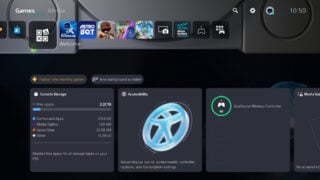Microsoft, Sony and Nintendo commit to new loot box policies
Leading publishers also agree to odds disclosure policies on PC and other platforms

Microsoft, Sony and Nintendo are to introduce new policies that require games made for their consoles to disclose loot box odds.
The news was announced by Entertainment Software Association on Wednesday, to coincide with a Federal Trade Commission workshop looking into consumer issues surrounding loot boxes being held in Washington DC.
The ESA said in a statement: “The major console makers – Sony Interactive Entertainment, operator of the PlayStation platform, Microsoft, operator of Xbox and Windows, and Nintendo, operator of the Nintendo Switch gaming platform – are committing to new platform policies that will require paid loot boxes in games developed for their platforms to disclose information on the relative rarity or probability of obtaining randomized virtual items.
“These required disclosures will also apply to game updates, if the update adds new loot box features. The precise timing of this disclosure requirement is still being worked out, but the console makers are targeting 2020 for the implementation of the policy.”
The ESA also said that many of its publisher members either already disclose or have voluntarily agreed to disclose loot box odds in their games no later than the end of 2020 – on consoles and on other platforms.
These companies include Activision Blizzard, Bandai Namco, Bethesda, Bungie, Electronic Arts, Take-Two, Ubisoft, Warner Bros. Interactive Entertainment, and Wizards of the Coast.
“Many other ESA members are considering a disclosure,” the statement added. “The disclosure will apply to all new games and updates to games that add such in-game purchases and will be presented in a manner that is understandable and easily accessed.
“Taken together, these disclosures will help reach consumers playing across a variety of games, including PC games and other games delivered outside of the platforms.”
In April 2018, the Netherlands Gaming Authority and the Belgian Gaming Commission declared that certain types of loot boxes were in violation of gambling laws, leading to a crackdown on their inclusion in games.
Loot boxes were also the subject of much debate during a recent ministerial inquiry into immersive and addictive technologies in the UK. However, the Gambling Commission said it doesn’t consider loot boxes to be a form of gambling because there’s no official way for people who purchase them to monetise their virtual contents.
On Tuesday, Psyonix announced plans to remove paid, randomised loot boxes from Rocket League later this year.














